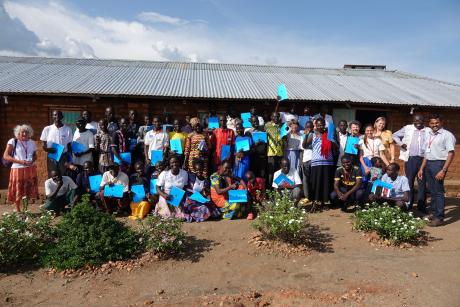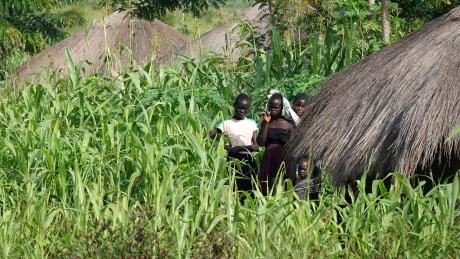
Did you know that there are people who are fourth generation refugees? This is true for many of the refugees at Rhino refugee settlement, northwest of Uganda where Mission Aviation Fellowship flew Flame International for an hour and twenty minutes. The alternative road transport would see them travel all day.
“I can’t bring these people up here by road because we work them a lot when we come for these missions,” said Val Batchelor, deputy director, Flame International.
33-year-old Paul Topa has lived the most part of his life as a refugee. His parents first escaped war in South Sudan in 1993 when he was only three years old. They returned to their country in 2013 when South Sudan became a sovereign state, but soon escaped yet another war in 2016. He has since lived at Rhino camp with his wife and three children.
“It’s not easy being a refugee all my life. When I begin narrating it, I feel bad,” he said.
With tears rolling down his face, Paul says he doesn’t belong anywhere. He feels that he has no country.
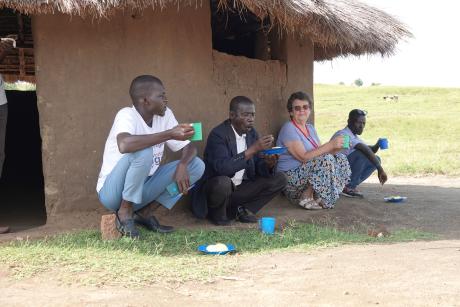
This is the third time Flame International is visiting Rhino refugee settlement and on one of those occasions, Paul gave his life to the Lord Jesus.
“I got saved in 2019. I was so frustrated. I felt life had no meaning. I felt things were getting out of hand. This programme has been of great help. It has freed my heart, at first, I had a lot of blame on the government and the rebels, I thought they were the cause for my failure. I even blamed my parents.”
Flame International holds Bible-based teachings that facilitate refugees’ healing from trauma and bring hope. The teachings targeting leaders from among the refugees themselves include short drama skits.
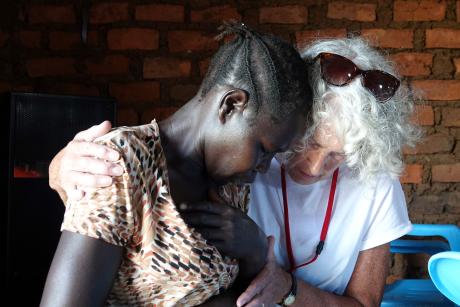
“The pastors on ground need to know how to handle trauma. We want them to learn to teach. We want to empower them. During the time of teaching, they experience God’s healing,” Val said.
Even though Paul finds hope in knowing that God cares about him, he wouldn’t want to return to South Sudan.
“I don’t feel good being a refugee. If anybody asked me to go back to my country, I would not. In fact, I feel I don’t have a country,” Paul said.
These remarks from Paul are a clear indication that these refugees are going to be in Uganda much longer. And MAF’s focus is to ensure that everyone that can offer help does so speedily and in safety.
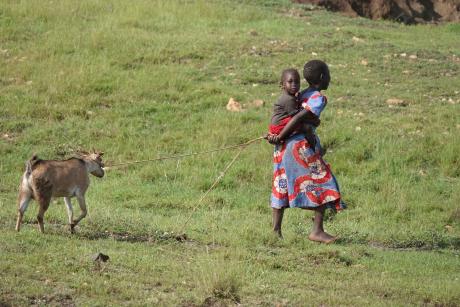
“MAF is totally and utterly reliable. When we’ve had floods and were not able to drive by road, MAF has picked us up. We’ve been able to depend on them and we know that they will always help us at the end of the day,” Val said.
Even though Uganda is doing a great job protecting these refugees, the decision by United Nations High Commissioner for Refugees to cut food rations is escalating conflict and interrupting the healing journey. Some of the refugees have opted to return home to South Sudan. And according to their friends, many have lost their lives in the process.
